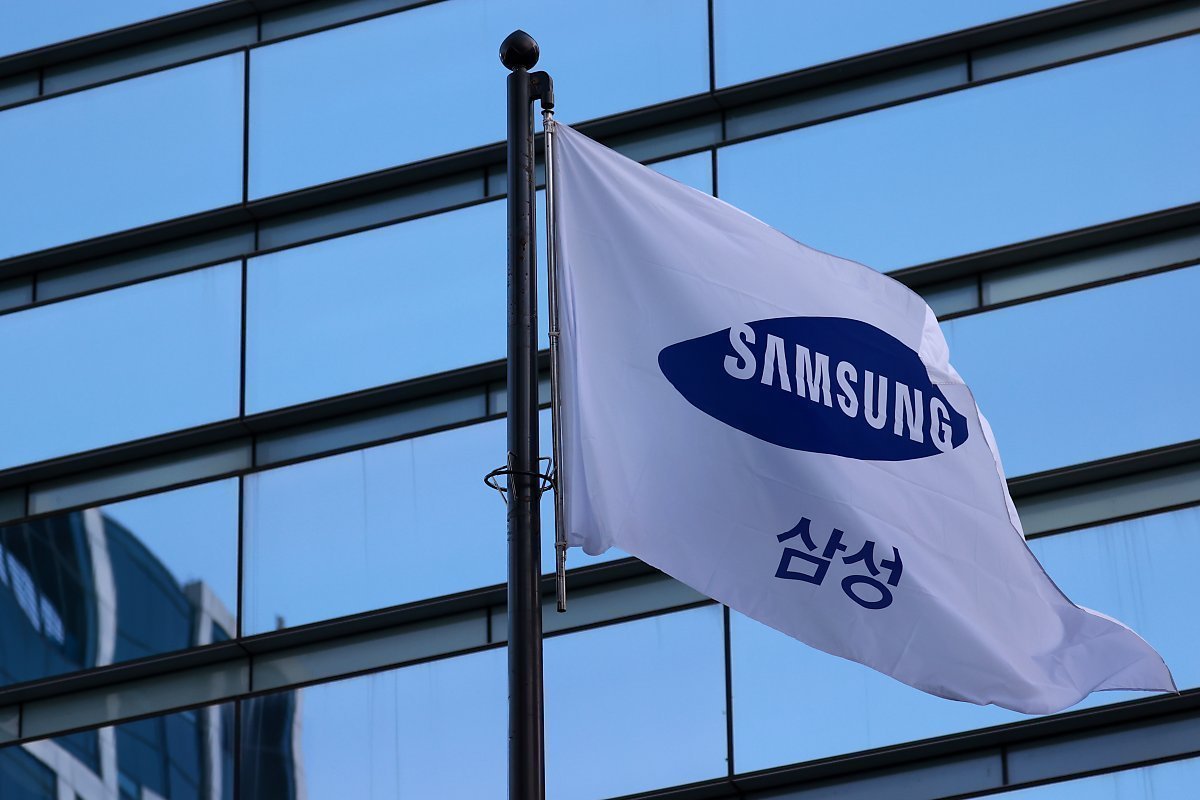A landmark deal to crack down on offshore tax havens, though initially designed to target digital economy behemoths such as Google and Netflix, has spilled over to South Korean chipmakers Samsung Electronics and SK hynix, though the degree of its impact remains unclear.
On Friday, the world’s most powerful nations agreed to impose a 15 percent global minimum tax on companies with revenues above 750 million euros ($867.5 million).
Also, those with revenues above 20 billion euros and a profit rate above 10 percent, will have to pay 25 percent of what they make over the 10 percent as taxes in countries they made the money from. The new cross-border tax scheme, being participated in by 136 nations and led by the Organization for Economic Cooperation and Development, is set for launch in 2023.
From South Korea, Samsung Electronics and SK hynix could be among the firms subject to the new levy scheme.
Samsung, if it posts 236.8 trillion won ($198 billion) in revenue and 15.1 percent of operating profit as it did last year, would face a 25 percent tax on the surplus 5.1 percent operating profit, which is roughly 3 trillion won. As Korea accounts for 16 percent of Samsung Electronics’ profit, the remaining 84 percent of the 3 trillion won, or 2.5 trillion won, will be distributed in countries where they company sold products such chips and smartphones.
SK hynix, which logged 32 trillion won and a 15.7 percent operating profit in 2020, would face the 25 percent tax on the 5.7 percent if the new taxes were to be levied based on last year‘s earnings.
To alleviate the impact on Samsung Electronics and SK hynix, the Ministry of Economy and Finance is mulling a tax cut to prevent double taxation.
“Even though the global digital tax takes effect, the tax burden on domestic companies won’t be big,” a ministry official said.
The Finance Ministry predicts that the global minimum corporate tax will eventually increase Korea’s tax income as a whole, enough to make up for tax discounts for Samsung Electronics and SK hynix, by bringing home Korean companies running offices in overseas tax havens.
As Korea charges a corporate tax as high as 27.5 percent, there is a practice among Korean companies to operate foreign offices in tax havens.
According to data from Rep. Yong Hye-in of the minority Basic Income Party, 51 Korean conglomerates operated 473 foreign offices in 22 tax havens last year -- 146 in Singapore, 93 in Malaysia, 50 in the Philippines, 41 in the Cayman Islands, 36 in Chile, 28 in Panama, 16 in Austria, 12 in Switzerland, 10 in Luxembourg, 6 in the Virgin Islands, among others.
By group, the number of foreign offices in tax havens was, 59 for Samsung, 57 for SK, 34 for LG, 33 for Lotte, 33 for CJ, 25 for Hyundai Motor, 16 for Hanwha, 12 for GS, 11 for Doosan and 10 for Posco.
The global minimum tax is expected to bring those foreign offices home and increase Korea’s tax income.
At the same time, the new tax rule will give Korea a legal basis to impose taxes on giant multinational IT firms that have been sending profits in Korea to their headquarters located overseas.
Last year, 19 global IT companies including Google, Microsoft, Facebook, Apple, Netflix and Disney paid 153.9 billion won in corporate tax in Korea. Google Korea, for instance, made 1 trillion won in profit, but only paid 153.9 billion won in corporate taxes.
“There will be more taxes levied on multinational enterprises in Korea and the taxes Korean firms will pay abroad,” Finance Minister Hong Nam-ki said during a parliamentary audit held at the National Assembly on Oct. 6.
By Kim Byung-wook (
kbw@heraldcorp.com)








![[Out of the Shadows] Seoul room clubs offer drugs to compete for clientele](http://res.heraldm.com/phpwas/restmb_idxmake.php?idx=644&simg=/content/image/2024/11/05/20241105050566_0.jpg)